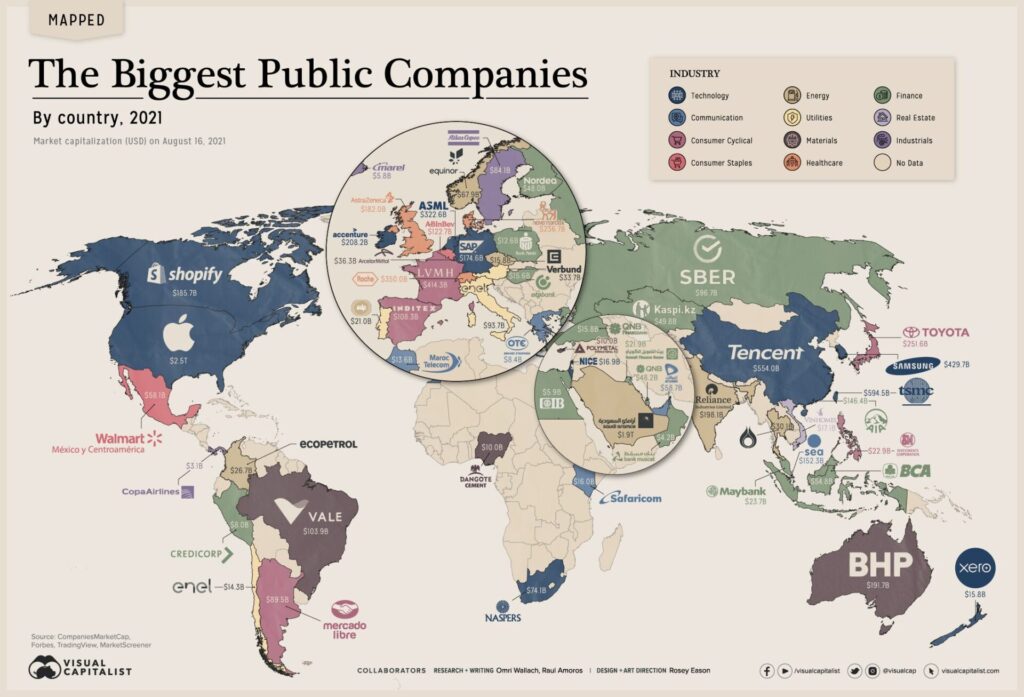Number of Enterprises
As of 2023, there were approximately 359 million companies worldwide. This number includes a wide range of businesses, from small local enterprises to large multinational corporations. This number includes businesses of all sizes, from small sole proprietorships to large multinational corporations.
The global business landscape is dynamic and constantly evolving. Key trends include digital transformation, with increasing adoption of digital technologies across all sectors. There is also a growing emphasis on sustainability, with businesses focusing on sustainable practices and green technologies. Globalization continues to drive the expansion of companies into international markets. Innovation remains a key driver, particularly in fields like artificial intelligence, biotechnology, and renewable energy.
In summary, the number of companies worldwide reflects the dynamic and evolving global economy. From small local businesses to large multinational corporations, each plays a vital role in economic growth and development. The future looks promising with ongoing advancements in technology, sustainability, and globalization shaping the business landscape.
- Micro-enterprises ( ~90%): They account for the overwhelming majority of businesses worldwide. These are often family-run or very small-scale operations. (Fewer than 10 employees)
- Small enterprises (5-8%): Businesses playing an important role in local economies.(10 to 49 employees)
- Medium-sized enterprises (~1-2%): Increasingly significant players with higher employment and economic impact.(50 to 249 employees)
- Large enterprises (<1%): Relatively small in number, but command significant economic resources.(250 or more employees)
Companies in each country
Asia
Asia is home to a significant portion of the world’s companies, driven by the economic powerhouses of China, India, and Japan. In 2023, there were an estimated 225,000 large companies (those with 250+ employees) operating in Asia1. The region’s rapid economic growth, large population, and increasing urbanization contribute to the high number of businesses. Key sectors include manufacturing, technology, and services.
North America
North America, particularly the United States and Canada, hosts many of the world’s largest and most innovative companies. In 2023, there were over 41,000 large companies in this region1. The U.S. is known for its strong technology sector, with Silicon Valley being a global hub for tech startups and giants alike. Other important industries include finance, healthcare, and manufacturing.
Europe
Europe has a robust business environment with a mix of small and medium-sized enterprises (SMEs) and large corporations. In 2023, Europe had around 83,000 large companies1. The region is known for its diverse economy, strong regulatory framework, and emphasis on sustainability. Key industries include automotive, pharmaceuticals, and financial services.
Latin America
Latin America has a growing number of companies, particularly in Brazil, Mexico, and Argentina. The region’s economy is diverse, with significant contributions from agriculture, mining, and manufacturing. While the number of large companies is smaller compared to Asia, North America, and Europe, SMEs play a crucial role in the region’s economic landscape.
Africa
Africa’s business environment is rapidly evolving, with increasing numbers of startups and SMEs. Key sectors include agriculture, mining, and telecommunications. While the number of large companies is relatively low, the continent’s young population and growing middle class present significant opportunities for business growth.
Oceania
Oceania, including Australia and New Zealand, has a smaller number of companies compared to other regions. However, the region is known for its strong economy and high standard of living. Key industries include mining, agriculture, and services. Australia, in particular, has a significant number of large companies operating in these sectors.
Industry
Enterprises are divided into numerous industries based on the products or services they provide.
- Technology: A rapidly growing sector including software development, hardware manufacturing, IT services, and more.
- Healthcare: Encompasses hospitals, pharmaceuticals, medical devices, and health insurance providers.
- Manufacturing: Production of goods ranging from cars and electronics to textiles and food products.
- Finance: Includes banks, investment firms, insurance companies, and other financial institutions.
- Retail: The sale of goods to consumers, including online stores and physical shops.
- Energy: Oil & gas, renewable sources, utilities – essential for powering societies.
- Agriculture: Farming, food processing, and related activities that form the food supply chain.
- Transportation: The movement of goods and people via air, road, rail, and sea.
- Construction: Building of residential and commercial structures, and infrastructure projects.
- Education: Schools, universities, and training providers.
- Hospitality: Hotels, restaurants, tourism –focused on the travel experience.
- Professional Services: Accounting, law, consulting, and other services businesses.
- Government: Public sector organizations providing essential societal services.
- Non-profit Organizations: Driven by missions like social welfare, environmental protection, and charity.
